Last Chance Continuing Education before the Iowa State relicensure period ending August 2024
Registration costs include course materials for 5 CEs, breakfast, refreshments, and parking.
REGISTRATION: Register through our online portal.
7:30–7:55 a.m. Registration & Breakfast; College of Dentistry, First Floor
7:55–8 a.m. Welcome and Opening Remarks
8–9 a.m. Dental Materials Update on Resin-based Composites - Victor Feitosa, DDS, Clinical Assistant Professor, Department of Operative Dentistry
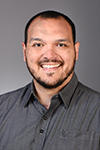
At the completion of this program, participants should be able to:
- Differentiate the classes of resin-based composites concerning filler particles, viscosity, and shrinkage stress generated.
- Describe the optimal clinical situations when bulk-fill composites could be used and how successful are these materials in clinical trials.
- Understand how chameleon composites match the shade of teeth and how reliable they are in terms of polishing and color stability.
9–10 a.m. Decoding Success in Complete Dentures Patients – Robert Bowers, DDS, Assistant Professor, Department of Family Dentistry
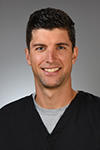
At the completion of this program, participants should be able to:
- Identify key patient factors that may impact the success of complete dentures and ways to help mitigate these challenges.
- Outline steps/appointments that can be shorten or limited while noting others that are not comprisable without impacting the eventual course outcome.
- Utilize additional digital techniques that may provide improved outcomes as alternatives to traditional denture workflows.
10–11 a.m. Implant-retained Overdentures – Andrew Stevenson, DDS, Adjunct Assistant Professor, Department of Family Dentistry
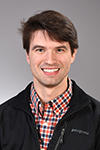
At the completion of this program, participants should be able to:
- Understand the case selection criteria and treatment planning fundamentals of implant-retained overdentures.
- Describe how overdentures compare with other implant retained and supported prostheses.
- Outline the clinical steps in fabricating a new implant-retained prosthesis.
11:15 a.m.–12:15 p.m. Common Orthodontic Problems and Solutions for the General Dentist, Chad Morarend, DDS, MS, Adjunct Assistant Professor, Department of Orthodontics
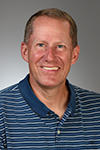
At the completion of this program, participants should be able to:
- Develop a sense of when to refer children to early interceptive treatment and comprehensive treatment.
- Give the general dentist a sense of factors that go into developing an orthodontic treatment plan.
- Give the general dentist a few examples of cases they can easily treat in their offices with aligners.
- Share with the general dentist the complications and complicating factors during orthodontic treatment that affect treatment outcomes.
12:15–1:15 p.m. Challenging and Interesting Dental Patients: Strategies and De-escalation Techniques for the Dental Team – Nima Chaudhary, Senior Behavioral Assessment Consultant, Survivor Advocate, UI Threat Assessment Team; Peter Berkson, CTM-University of Iowa Threat Assessment Team-Healthcare Division; Ann Synan and Sara Stone, Patient Relations Specialists, Office of Patient Experience, UI College of Dentistry
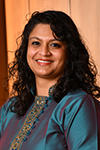
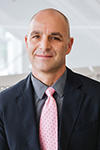

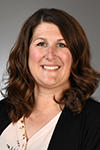
This session will explore situations, strategies, and techniques to help dental providers and staff to be more confident in recognizing, preventing and resolving issues with patients and visitors that can include aggressive or disrespectful behavior. Attendees will learn helpful techniques aimed at preventing emotional and behavioral escalation of people in a dental office or educational setting. Tips will be provided for documenting dental record. This session will also provide informaton on resources for additonal support for the dental team.
At the completion of this program, participants should be able to:
- Understand the importance of Situational Awareness and how it relates to preventing escalation.
- Value the power they have to influence and mitigate an escalated person/situation.
- Learn a series of safety concepts designed to lessen the potential for an escalated situation.
- Understand how our thoughts and words influence our behavior and approach to reducing escalated or disrespectful behavior.
The Threat Assessment Team (TAT) supports campus safety by assessing, monitoring, and providing support for people exhibiting unusual distress, fixated grievances, or troubling behaviors, including supporting the University of Iowa Hospitals and Clinics as well as the Dental Clinics.
1:15 p.m. Adjourn
GENERAL INFORMATION
The College of Dentistry will make every reasonable effort to assure that requested continuing education programs are provided but assumes no liability for failure to deliver beyond the refunding of fees paid to The University of Iowa. The University of Iowa reserves the right to limit registration to the size of the available classroom or clinical space. Sponsorship of this course does not imply subject matter, product, or technical endorsement.
REGISTRATION: You may register using our online portal: https://apps.dentistry.uiowa.edu/CodCERegistration/
CANCELLATIONS/REFUNDS: Fees paid will be refunded less a $45 per person processing fee following notice of cancelation. Refunds will not be granted for cancelations received after the course begins.